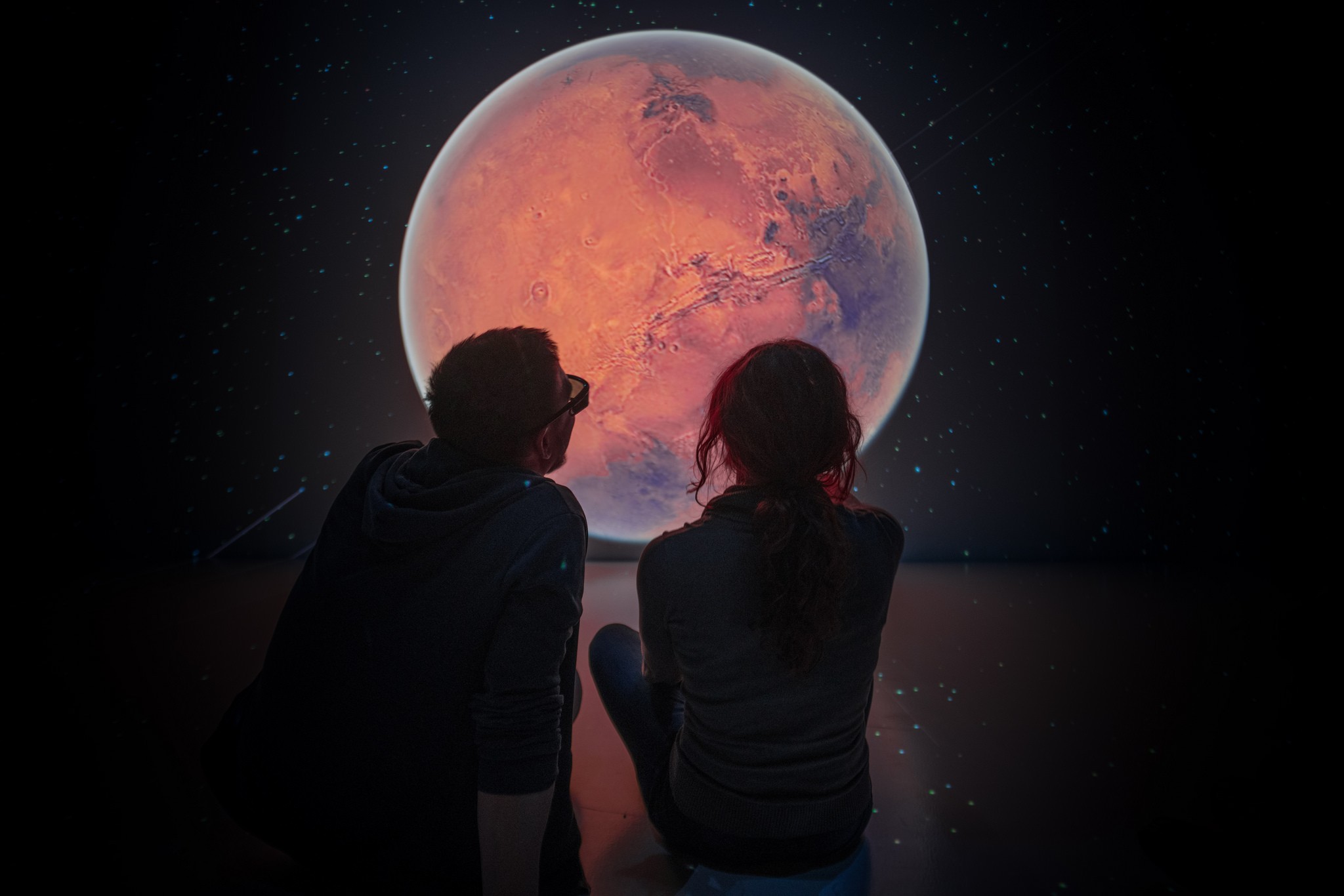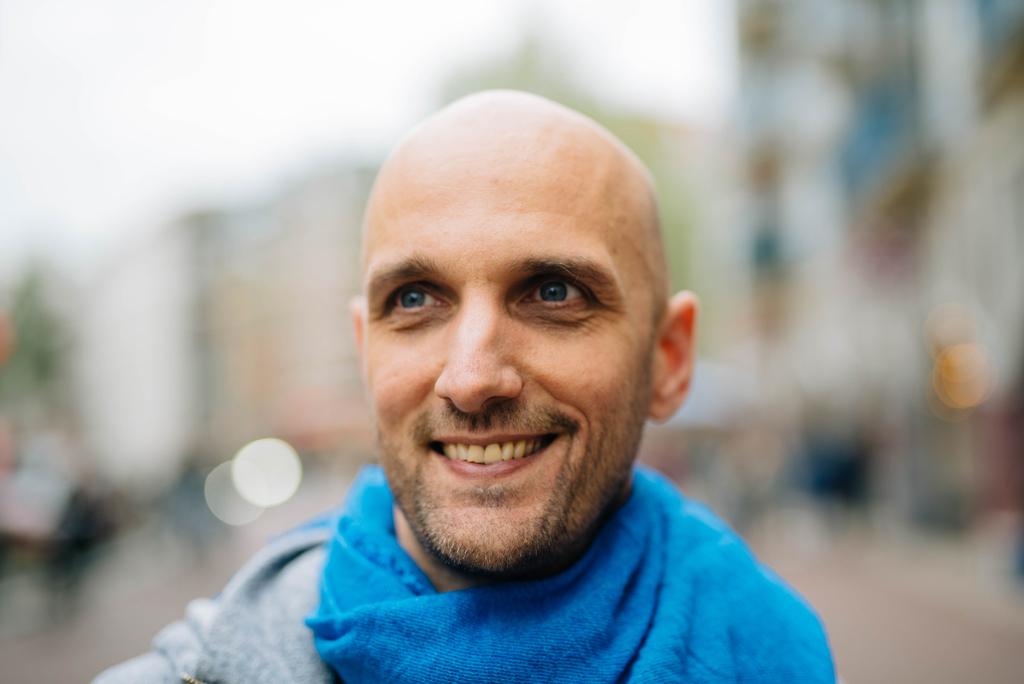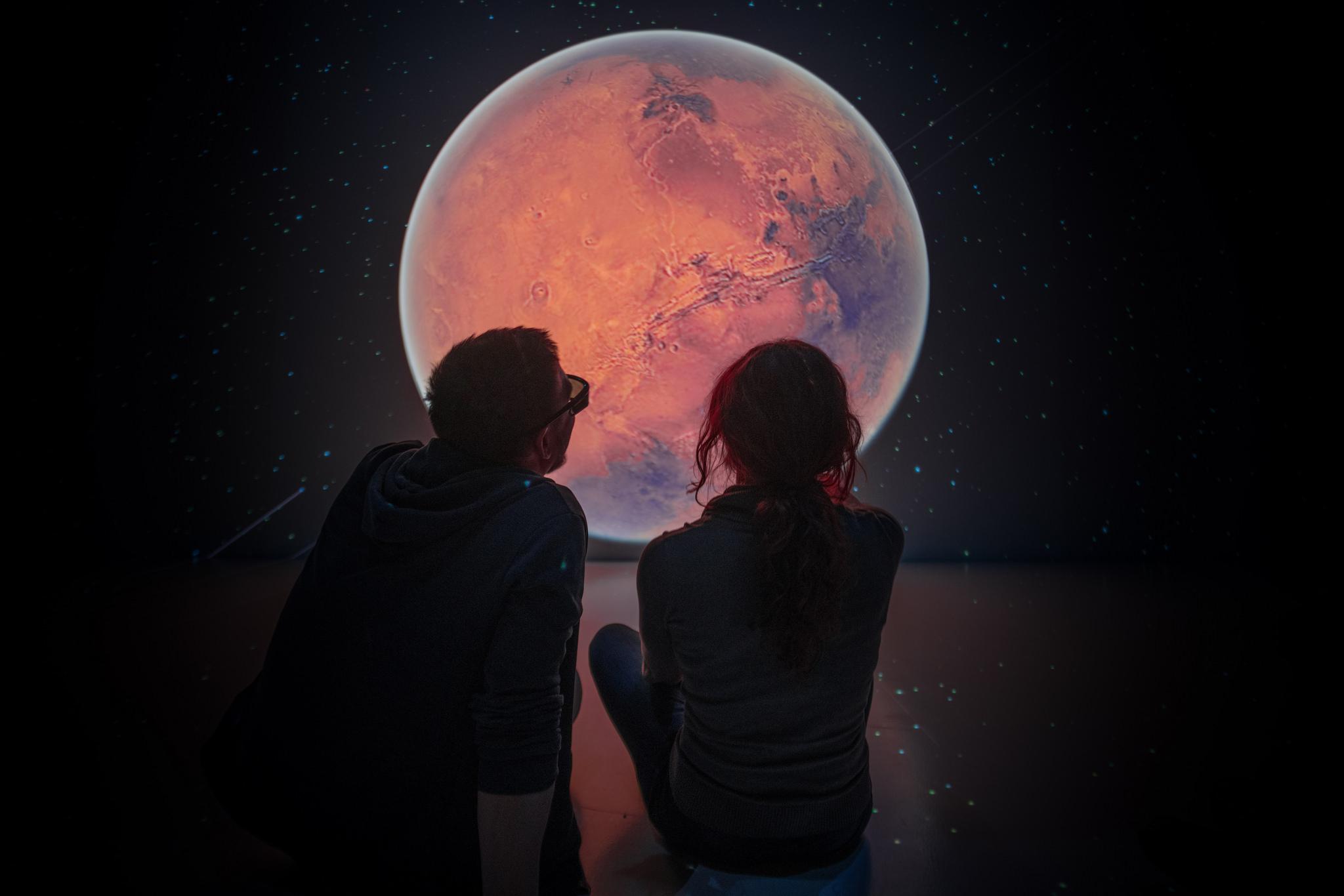Can we learn about ourselves by studying outer space? The further we go, the more we get confronted with the unknown of ourselves. In ongoing research Waag is exploring human outer space activities. Societal relevant scenarios for outer space human activities are investigated. Specifically the potential of life on other planets is explored from a social, ecological and ethical perspective, and not just the technological.
Until recently, the human activity in space was aimed at exploring the deepest realms of the Universe and observing rare observables. With a development of planetary sciences attention shifted to materiality found in our and other solar systems. Specific focus goes to the bio-signatures, chemical fossils that provide scientific evidence of past or present life. With advanced radar technologies and observational instruments we can now study deep history of those planets and their moons.
At Waag, Miha Turšič is the person who is conducting and coordinating this research. Miha is the co-founder of KSEVT, and received a honorary mention at Ars Electronica in Linz, competing in the pioneering section where ESA (European Space Agency) and AEC (Ars Electronica) Futurelab established a first-ever residency for an artist at the ESA.
Learning from extreme habitability
Extreme environments seem extreme only from a human perspective. From biological observation they reflect the deep complexity of time and space on bio diversity. Alien life, if it exists or not, represents ecological multiplicity. We as humans cannot understand and manage all of them. What we can do is learn from them, which can give us a better understanding of our own living environment. This can make us define environmental ethics that could actually protect quality of life within ever changing living environments. Further research offers an opportunity to present these perspectives beyond simplified visual representation.



